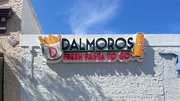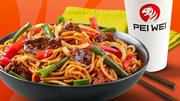Article
Organic on the menu
Fast casuals weigh cost vs. benefit of organic items.

August 11, 2008
Despite higher prices for organic foods, restaurant owners continue to roll out organic menu items because, they say, the benefits of going organic outweigh the costs.
Brian Laing opened his organic and natural food establishment, Spiedie Bistro, in Phoenixville, Pa., in March and already is scouting real estate for a second location. Some of Spiedie's organic menu items include bison, tofu, Portobello mushrooms and various teas.
While part of Laing's success depends on finding locations where people wouldn't mind paying more for healthy food, it also depends on his being able to find ingredients at a reasonable price. Laing saw Phoenixville — about 30 minutes outside of Philadelphia — as a very environmentally friendly town, so he went a step further and opened around the corner from the city's farmer's market.
"Yes, organic food is more expensive but…instead of paying $600 for 14 or 15 boxes of food just to get a shipment, it's easier to get say 20 or 30 pounds from the farmers," Laing said. "It's more cost efficient because I don't have to over-order just to get what I want."
Laing and other organic restaurant operators may be on the forefront of an organic and healthy fast food explosion, said Mac McCabe, president, CEO and co-founder of O'Naturals, a natural and organic fast casual concept based in Falmouth, Maine.
"This (movement) is huge," McCabe said. "People are thinking differently. It's showing up in grocery stores and (fast casuals) are a natural extension."
McCabe co-founded the O'Naturals brand with partner Gary Hirshberg, current president and CEO of Stonyfield Farm Inc. organic yogurt. With a concept of quality food served in family-friendly environments and at a reasonable price, O'Naturals has grown to six units in seven years, including three company-owned sites.
McCabe's and Hirshberg's plans consisted less of creating a viable business model than believing that a certain, healthy lifestyle of eating would ferret out a solid consumer base and in turn drive profits. Making it work, though, took a little more effort than opening a restaurant that serves non-organic food.
To make the dishes served at O'Naturals affordable, the company had to find suppliers who could deliver consistent products at a reasonable price.
"There aren't that many of them, which makes the decisions relatively easy," McCabe said.
Defining the terms
There can be much confusion in the marketplace regarding labels of organic, natural and fresh. The organic designation refers to the U.S. Department of Agriculture's specific certification that the product is guaranteed "to have been grown and processed without synthetic pesticides or fertilizers, irradiation, chemicals, artificial ingredients or preservatives of any kind," in accordance with the federal Organic Foods Production Act.
"Natural" foods implies no preservatives or additives were used whereas "fresh" means there has been minimal processing to it, said Maria Caranfa, director of Chicago-based research firm Mintel Menu Insights.
According to the USDA, organically produced foods generally are more expensive because they must meet stricter regulations so the process is often more labor- and management-intensive and farming tends to be on a smaller scale. In a study conducted by the National Institute of Environmental Health Sciences, the government agency describes "on average organic foods cost 30 percent to 50 percent more than conventional foods."
O'Naturals opts for a variety of organic food sources, sometimes including local farmers, but primarily uses Dayville, Conn.-based Unified Natural Foods Inc., the largest publicly traded wholesale distributor to the natural and organic foods industry in the United States. Although UNFI representatives were unavailable for comment, the company's net sales for its most recent quarter grew by 21 percent over the previous year, to $887 million.
And the growth of Seattle-based Organic To Go, the nation's only USDA-certified organic fast casual, also has exploded in only three years' time.
Launched in 2005, Organic To Go sells its products in more than 170 locations, including 33 cafés and roughly 120 wholesale locations. Founder and CEO Jason Brown projects Organic To Go will grow 70 percent in size in 2008 over the previous year.
"We're just getting started. I think there are lots of trends going on and organic is definitely gaining prominence," Brown said. "Organic and natural products are growing to a $100-billion industry and foodservice is 80 percent of that growth."
| ||||||||||||||||||||||
Brown conducted six months of research on organic food suppliers and existing organic outlets prior to Organic To Go's launch. Brown visited dozens of establishments to learn about the kinds of food, suppliers and quality of service that people were looking for and where they worked.
"I also had conversations with business leaders throughout the natural products industry to zero in on how to mesh the organic side, which is paramount to Organic to Go's success," he said.
Organic To Go's suppliers include Full Circle Farm, a 140-acre certified organic produce farm in Carnation, Wash., milk supplier Organic Valley in Lafarge, Wis., and Santa Cruz Organics in California.
So far, Brown's growth predictions seem to be coming true. In July, Organic To Go reported that revenues for the company's second quarter increased 56 percent to approximately $6 million compared with last year.
Marketing to the family
While healthy food may carry a slightly higher ticket price, consumers' desire for healthy food is increasing, Caranfa said.
And even some of the largest fast-casual chains are taking notice of the trend, she said. Panera Bread has incorporated organic food and beverage items such as yogurt, milk, apple juice, peanut butter and American cheese into their children's menu items, hoping to appeal to parents' desires for more healthful and organic ingredients.
"It's an interesting place where they put it," Caranfa said. "Organics don't appeal to the kids, yet it appeals to parents."
Panera's implementation of a few organic items can be a cost-effective model for other fast casuals to meet consumers' growing demands for healthier options, without significantly increasing costs or conducting a full overhaul of their menu.
"I think organic and naturally raised does mesh well because people are going more and more to quick service and fast casuals for their meals," Caranfa said.
 ChatGPT
ChatGPT Grok
Grok Perplexity
Perplexity Claude
Claude













